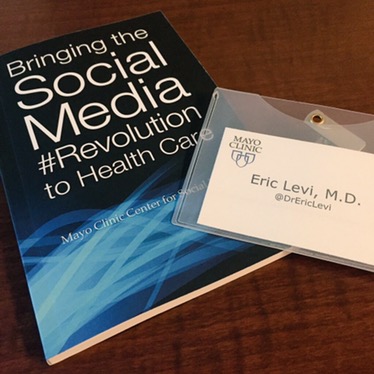
This is a recurring question I get asked by patients, communication officers and other doctors. Why are clinicians not on social media? What are the barriers to getting clinicians on to Social media?
Many of the reasons and excuses can be summed up to these 3 F’s:
1. False understanding of the purpose of Social Media
Many clinicians think that it’s a frivolous waste of time with selfies and food photos. Others think that it’s about marketing and self-promotion. Some others think that it’s a place where patients slam you and rate you.
Those things are not the primary use of social media in health care. Social Media is my medium of education, my personal network of learning. As a surgeon, I engage with other surgeons, and clinicians who are not within my specialty. I learn lots from anaesthetists, Family Practitioners, paramedics, nurses, Speech Pathologists and other craft groups. We talk about treatments, managements, equipments, etc. I learn from specialists from rural areas and other countries. I learn from students. And most importantly, I learn from patients and health consumers. I listen in on their conversations that may not occur in traditional consultation settings. I am better because of the personal learning network and communication that I engage in through social media.
Clinicians need to understand that Social Media is about connected learning, with clinicians and patients from all over the world.
2. Fear of regulators
Clinicians fear the regulators, lawyers, AHPRA, Boards, Hospital Execs, etc. We worry that we are crossing some legal boundaries.
Let me tackle the Australian National Law Section 133 that is referenced by AHPRA directly with regards to social media and advertising.
A person must not advertise a regulated health service, or a business that provides a regulated health service, in a way that-
(a) is false, misleading or deceptive or is likely to be misleading or deceptive; or
(b) offers a gift, discount or other inducement to attract a person to use the service or the business, unless the advertisement also states the terms and conditions of the offer; or
(c) uses testimonials or purported testimonials about the service or business; or
(d) creates an unreasonable expectation of beneficial treatment; or
(e) directly or indirectly encourages the indiscriminate or unnecessary use of regulated health services.
To me, statements a, b, d & e are common sense statements. As a clinician, you are allowed to talk about what you do, as long as you don’t claim that you are the best or offer misleading statements. Statement c is interesting in that you are basically not allowed to use testimonials, which mean that if someone talks about how good you are, you cannot retweet, repost or reblog. That’s an oddity in the Law, but that’s the Law of the land that we have to obey.
Above and beyond all this, as long as we abide by the rule of respect and the Privacy Act, there is no reason why a clinician cannot be on social media.
Here’s my simple suggestion: you cannot advertise freely, but you can educate passionately. Truthful evidence based education is not self-promotion. You cannot talk about patients, but you can talk about conditions, diseases or treatments.
Clinicians need to understand that it is ok to be on social media as long as you abide to core principles of professionalism.
3. Finite Resources (Time or money)
Clinicians tell me that they don’t have time for social media. I’m a busy surgeon. I get that.
You do not need huge amounts of time on social media. It would be a misunderstanding to consider Social Media as a waste of time. It is an investment. Small investments at various times during the day that potentially reap huge benefits. You invest time in learning. Social Media is an educational tool. Just as we read news on our smartphones between cases, during commuting and while waiting meetings, I flick through my Twitter timeline and read medical news, contribute to medical discussions and read journal abstracts. I follow Journals, Associations and many clinicians that add to my knowledge base. I summarise my papers and presentations into blog articles for my blog and Facebook page. I leverage the things that I already do on a day-to-day basis whenever I place them on social media. Tweeting my knowledge on the things that I do on a regular basis create public education. Having a video uploaded on a consent discussion that I repeat several times daily allow patients and other clinicians a snapshot into my medical thoughts. I read more journal abstracts through social media than I ever did through visiting the library. I pick up more great tips from other clinicians through engaging on social media than through meetings.
Social media is mostly free (at the moment). Time is a worthwhile investment. Clinicians need to be aware that as information transfer through the media evolve, social media is now the new norm for acceptable communication.
Clinicians need to understand that Social Media is a learning tool that does not require huge amounts of time.
My next blog will be on practical tips on getting clinicians on to social media. Do you have any thoughts on what we can do to get clinicians on social media?

